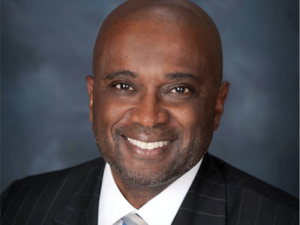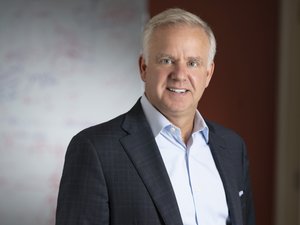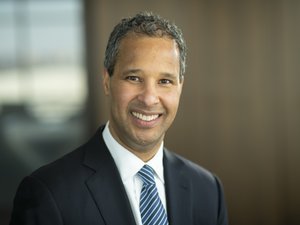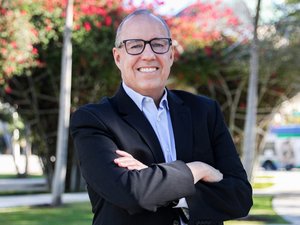After four years, social entrepreneurship co-working space Impact Hub is closing its D.C. location at the end of the month.
For the community, the shutdown seems abrupt. But court documents from November and December tell a months-long story of missed rent and utility payments and a stay from a judge that prohibited their landlord, the Grand Lodge of the Independent Order of Odd Fellows of D.C. (IOOF), from evicting Impact Hub D.C.'s owners until Feb. 1 — the same day Mission Hub, Impact Hub D.C.’s parent company, is closing up shop in D.C.
Mission Hub is a San Francisco-based group that is a part of the Impact Hub network. Impact Hub runs on a franchise model: Anyone interested in launching or building their own location can apply for a franchise site, and each Impact Hub location has a different owner. Mission Hub only owns Impact Hub locations in San Francisco, Berkeley, New York City and Washington, D.C.
The D.C. location is the only one impacted. All D.C. members have been given the opportunity to transfer their memberships to another city location, the closest being Baltimore, according to an email sent to members on Jan. 12 obtained by DC Inno.
"Throughout our time here, we have seen the ability of strong roots and deep community engagement to effect real growth and change. We have also seen the rise of other great communities doing much of the work we had set out to do," the email reads. "Places like 1776, In3 Incubator, and OpenGov have strong communities, and we hope will continue to support our members and community going forward."
Yet while the general consensus among those interviewed about the closure in the past week is that Impact Hub D.C. had a strong presence in the District’s social innovation scene and was seen as an accessible place for minority entrepreneurs, financial distress in the past few months has led to the closure of the D.C. location.
“Places like 1776, In3 Incubator, and OpenGov have strong communities, and we hope will continue to support our members and community going forward.”
What happened
On Nov. 15, the IOOF filed an eviction notice against Mission Hub at 419 7th St. NW in the Superior Court of the District of Columbia Civil Division. In the notice, the IOOF claimed Mission Hub failed to pay $499,178.58 due to them from March to November — including missed rent totaling about $405,000, late rent fees and electric bills.
Impact Hub D.C. took up the third floor and half of the fifth floor of the Chinatown building.
A lawyer representing the IOOF in the legal proceedings did not respond to an email about the court case prior to publication.
A Mission Hub representative was summoned to appear in court on Dec. 13 to settle the matter. In court, according to a document filed on the appearance day, Mission Hub and IOOF came to the following agreement: IOOF can’t evict Mission Hub until at least Feb. 1, and if Mission Hub wanted to stay, they needed to pay all of their debts by then.
On Jan. 12, almost a month later, Impact Hub D.C. members were informed via email that they would need to be out of the building by Jan. 31. The space would be shut down by Feb. 1, and all 130 members only had two weeks to find new accommodations. All three of Impact Hub D.C.’s team members will also be let go.
"There are a variety of factors that contributed to this. However, we expect that much of what the Impact Hub has done for the social innovation and entrepreneurship space will likely carry on in some of our programming and work being done by other groups like IN3, OpenGov, and Impact Hub Baltimore," said Tim Nichols, managing director of Impact Hub San Francisco, in a statement to DC Inno. When DC Inno reached out to Mission Hub, we were directed to Nichols.
"We will be working with the landlord to resolve the outstanding liabilities and do our best to support our great community to find a new home."
Program director Marc Carr said he was aware of a conversation in the past year about possibly finding a new, more affordable space for the campus. However, he noted that in his role, he would not be privy to any details on those conversations or any possible searches.
Impact Hub’s global network team, which gave Mission Hub their co-op/franchising rights, redirected our inquiries to Mission Hub.

What's next
In an interview Thursday prior to Impact Hub D.C.’s email announcement to the general public, Carr said the two-person D.C. staff would be working with all members to find them a new space. Specifically, they’re steering them to places like Alley powered by Verizon, the District government-supported Inclusive Innovation Incubator (In3) and 1327 Family near Thomas Circle.
"I will be sad to see them go," said Dominic Bonaduce, general manager at Alley’s D.C. location, in a statement to DC Inno. "They were one of the few remaining co-working spaces that really took a good look at what a member company was doing and what their employees were like. For us, it validated the model rather than simply accepting just about anyone who can afford a desk or office."
Memberships at Impact Hub D.C. ranged from $50-$375/month and office space rates start at $1,000/month. Both In3 and Alley have said they would honor that rate for new members coming from Impact Hub D.C., at least for the first few months.
"I understand the challenge when you're an entrepreneur and basically you're told 'Hey, you have two weeks to leave,' and then if finding new place requires you to change your budget, you need to change your budget, and it just creates all of these challenges," Aaron Saunders, CEO and founder of In3, told DC Inno in an interview.
"This is a tough business to be in, and a couple of years ago when there was none, opening a co-working space seemed like a good idea."
In addition, In3 will be absorbing all of Impact Hub’s programming, such as the Unlikely Allies monthly series and Thrive Workshops. In3 will also be taking over Impact Hub D.C.’s production studio, called Innovator's Studio, with Carr at the helm of the programming and studio management at In3. The studio is still on schedule to launch on Feb. 1.
"The silver lining is that there is another space, the Inclusive Innovation Incubator, that is a space for entrepreneurs in D.C. and it's very inclusive and open to the idea of social enterprise," Carr said in an interview.
“It’s really sad to see them close down. It’s not indicative of the ethos we have in the D.C. community.”
A community responds
Members interviewed by DC Inno say the news came as a surprise to them — despite the months’ long court proceedings and a few staff changes in the past six months.
Overall, members and people in the community say they’re saddened to see Impact Hub D.C. leave.
"I hope, and SEED SPOT hopes, that Impact Hub can re-flourish in the D.C. area in the future," said C'pher Gresham, SEED SPOT’s vice president of communities, in an interview. "We deeply believe that D.C. is the hotbed for social innovators."
SEED SPOT launched its D.C. location at Impact Hub and hosted its first cohort there. In September, the social enterprise accelerator moved to WeWork’s new Navy Yard location.
"They were a great landing place for us to host our first cohort. They enabled us to have a likeminded group of people who believe in social change, who believe in impact-driven entrepreneurship. I think that's really important for the city," Gresham said.
"It's really sad to see them close down. It's not indicative of the ethos we have in the D.C. community."
Impact Hub D.C. aimed to be a space that was accessible to all social impact entrepreneurs. Instead of following a model similar to places like WeWork, Impact Hub D.C. was more community and social enterprise oriented. They didn't just take anyone in. And unlike other social enterprise organizations, like Halcyon House in Georgetown, Impact Hub D.C. was centrally located in Chinatown. The location hosted a wide range of events like post-march action party at the 2017 Women's March on Washington and yoga workshops and their monthly small business workshops.
"We were there, we stuck it out through the good and the bad because of the people who were connected to Impact Hub D.C.," Carr said.
"My dream is that this spirit will continue in places like In3 and Alley and 1327 Family where people will continue to have really great conversations around how can we solve these social issues together."




